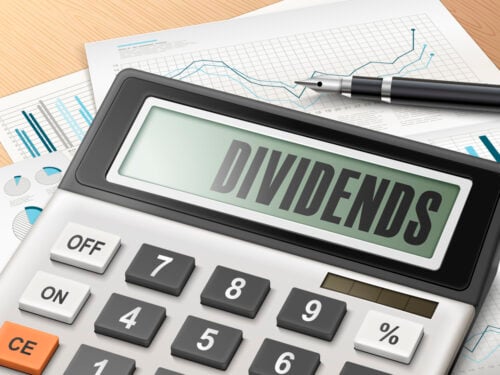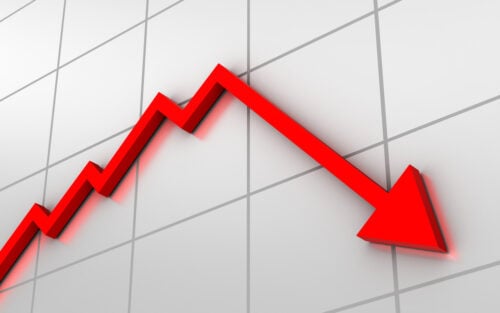A booming economy and low unemployment make recession seem incredibly far away. However, this boom has resulted in surging inflation, while global conflict has caused prices of primary commodities to skyrocket.
The Federal Reserve has stepped up and raised interest rates. Still, investors are questioning whether or not the central bank can accomplish this without pushing the US economy into a recession.
Should a recession occur, what are your plans and the best way to invest? This article offers a guide to investing during a recession, so you can have a better idea of where to put your money during a downturn.
Is It Right for You to Invest During a Recession?
During a recession, stock values often decline. If you have an existing portfolio, this can seem like bad news—but only if you cash out your stocks during a recession.
On the contrary, if you wish to buy stocks, doing so during a recession lets you “buy at a discount,” so to speak.

Investing during a recession is right for you if you have already built your emergency savings. Once you have built at least three months’ worth of expenses, you can start investing any extra money.
However, if you need cash now, you can get a loan from online lending institutions, where getting a cash loan within one business day is relatively easy.
Cash is always king in economic and financial downturns. Replenishing your cash reserves is crucial as many companies often cut back during these periods, resulting in overwhelming job losses.
You also need to ensure that you’re ready to invest for the long-term—at least seven years. Otherwise, investing during a recession may not be such an excellent idea.
Tips for Investing During a Recession
As an investor, planning to structure your portfolio is crucial, irrespective of the mildness or severity of the recession. Here are some excellent tips for investing during a recession:
Own Defensive Stocks
Consumer discretionary stocks are bound to undergo substantial gains whenever the economy grows. However, they’re mostly known as cyclical stocks since losses and gains within this group depend significantly on the rise and fall of consumer confidence and economic cycles.
Defensive stocks in non-cyclical sectors, such as consumer staples and utility stocks, are inclined to be insulated from these ups and downs. In other words, defensive stocks help protect your portfolio during a recession.
Companies selling essential goods and services, such as electricity, food, and shelter, belong to the non-cyclical category. They are often less exposed to economic cycles.

This indicates that the revenue on consumer staples (household products, beverages, food, etc.) is relatively recession-proof. Irrespective of how poorly a particular country’s economy is, people will still need to eat, use toilet paper, and pay for their utilities.
The demand for utilities also skyrockets during a recession, making utilities do better than other stock sectors during downturns.
The healthcare sector is usually stable across business cycles. More interestingly, research shows that healthcare employment constantly increases whenever countries experience severe economic downturns.
Utilize Dollar-cost Averaging
Dollar-cost averaging refers to a unique investment strategy where you purchase a fixed amount of a particular investment regularly, regardless of the current price.
Recessions are excellent opportunities to utilize the dollar-cost average approach. You’ll be able to buy shares regularly as prices decline. You can set your dividends to reinvest automatically in the security or use a new money-to-dollar cost average.
Invest in Reliable Dividend Stocks
The best dividend stocks can provide an excellent cushion for your portfolio in a recession. Even if the price of a company’s stock falls or plummets, that stock may still keep paying your dividends.
In other words, you generate passive income over the long term.

Dividends may signal a stock’s strength and provide an excellent means of assessing the dollar cost average throughout market volatility. Therefore, look for companies with strong balance sheets and low debt-to-equity ratios.
Purchase Quality Assets During a Downturn
You should do your best to seek high-quality assets across various classes to protect your portfolio during a recession. Hallmarks of quality investments include low beta, low average, and increased return on investment (ROI).
Some companies don’t depend primarily on economic growth to survive or thrive. Such companies — often called “all-weather businesses” — have high recurring revenue, such as subscription-based sales models.
As a result, these companies are far less sensitive to economic downturns or recessions.
You should avoid organizations with high debt loads since they could have lots of trouble servicing their debt, especially if cash flows and revenues decline.

In addition, companies in this category may also face difficulty refinancing debt at maturity if lending standards and credit conditions tighten.
Speculate on Actively Managed Funds
If you’re a fund investor, picking more actively managed funds during economic downturns is an excellent idea.
Research states that most actively managed funds do better than their peers by 4.5%–6.1% per annum in down markets. This is after adjusting for expenses and risks.
Stay Away from Growth Stocks During Downturns
A recession isn’t an excellent period to own growth stocks. These stocks, especially unrewarding companies affiliated with high-growth prospects, worsen during economic downturns.
Therefore, you should focus on dividend-paying stocks and income-generating investments.
What Sectors Tend to Perform Well During a Recession?
Some sectors are not affected by a recession as they have integral roles in the economy. In simple words, these sectors are valuable because everyone needs them — whether the times are good or bad.
Here are sectors that tend to perform well during economic downturns:
Food and Grocery
Food is a necessity that never goes away — even when the economy is shrinking.
Although you can change the amount of food and the brands you buy, overall spending at the grocery store or the supermarket won’t change too much. In fact, some may even increase the amount they spend on groceries as they cut down spending on fast food and expensive meals.
This makes food stores, grocery, and similar suppliers one of the most stable economic sectors.
Utilities
Indeed, the utility sector isn’t the most exciting to consider investing in, especially during economic downturns. However, it’s an excellent choice for braving out recessions.
Utilities are another stable sector of the economy since most people don’t usually adjust water, electricity, or other utility usage that much.

As a result, this industry holds fewer surprises for investors, which is why many are interested in investing.
Most usually generate pretty solid dividends. Utilities are also beneficial in tougher economic periods when interest rates generally plummet. They can maintain their systems or borrow with cheaper interest rates to expand.
Healthcare
This is one of the most cited recession-proof industries, and it’s easy to see why. People will almost always seek medical treatment if they need it.
Many people consider health as wealth, and they’ll do whatever they can to live a long and healthy life.
Another reason why healthcare is recession-proof relates to how most Americans pay for services in this sector. In many cases, insurance picks up most of the bill, if not all.
This insulates most Americans from the overall cost of sound health, whether the economy is booming or not.
Other recession-proof sectors include:
- Alcohol, drugs, and tobacco
- Cosmetics and makeup
- Insurance
- Real estate
Final Words: A Guide to Investing During a Recession
Recessions can be pretty challenging for growing wealth and increasing returns. However, the market and countercyclical rallies are always progressive.
Therefore, the key to survival is to avoid getting whipsawed due to short-term market gyrations, remain fully invested always, and stay focused on long-term goals.
Author’s Bio:
John is a financial analyst but also a man of different interests. He enjoys writing about money and giving financial tips, but he can also dive into relationships, sports, gaming, and other topics. Lives in New York with his wife and a cat.


 Tags:
Tags:










